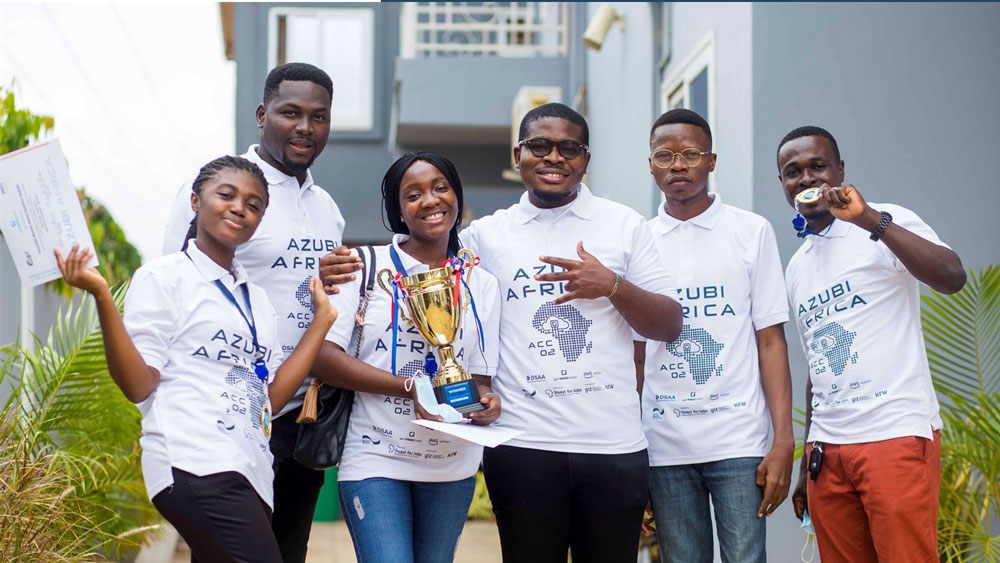The digital revolution has begun! So far, the impact on global economies and labor markets has been tremendous, resulting in a shift in the skills that employers seek. While it is evident that further change is on the way, it is also clear that these new changes will need the development of more complex skills and workforce retraining. To keep up with the changing job market and benefit from the immense economic potential it presents, individuals, businesses, and even governments must prioritize human capital investment, particularly the development of digital skills.
The challenge
Digital skills gap can be one of the world’s greatest challenges today. Technology and innovation can be useful drivers to achieving the African continent’s poverty alleviation, economic growth, and long-term development goals, but the digital divide continues to widen as globalization and technological innovation accelerates. The following are some of the reasons why the continent now, more than ever, needs to become more digitally connected and skilled:
- Africa has the world’s largest youth population, accounting for over 60% of the continent’s unemployed, a proportion that is expected to double by 2050.
- 230 million jobs on the continent will require some level of digital skills by 2030. (IFC)
- By 2022, there will be 6.2 million job openings in cloud-based technology.
- Employers are struggling to find employees with the right technical skills to meet their organizational goals. (“Dynamics 365 within education – Microsoft Tech Community”)
- COVID-19 has exponentially accelerated the need for companies and institutions to digitally transform and prepare for a new normal. (“Inspiring the First AI Generation”)
Our approach to addressing the challenge
To enable individuals, businesses, and governments across the globe to benefit from the immense economic potential the high demand for digital skills in Africa presents, Getinnotized and its partners launched the Azubi Africa Academy, an initiative aimed at putting human capital at the center of the digital revolution through the provision of digital and soft skills training. Here is how we do this:
- A fully virtual training model: Our goal is to aid all African youth in pursuing a career in the technology industry. As such, our academy strives to minimize cost, remove geographical barriers, and make an impact by providing a fully virtual, well-structured, and industry-standard digital skills training in Data Science and Cloud technologies in Ghana, Kenya, Rwanda, and Senegal.
- Collaborations: While we believe that a continuous curriculum development would enable our curriculum to reflect current trends, encouraging stakeholder participation will most certainly close the gap between what is taught and what is needed. To achieve this, we have formed a strong cross-partnership with the Digital Skills Accelerator Africa e.V. (DSAA). This collaboration has aided in the establishment of a more effective digital skills development strategy, as well as an effective and efficient framework for managing knowledge, expertise, and resources.
- An integrated career guidance and mentorship model: Our career guidance and counseling center’s primary goal is to prepare and position our trainees to achieve their long-term career goals after completing our training. As a result, we organize career planning and mentorship training workshops as part of our extracurricular and community engagement activities, which are delivered on one-on-one or in small group settings.
- Diversity and inclusion centered delivery model: Because we believe in a diverse and inclusive culture, we have designed intervention programs to meet the needs of underrepresented groups, resulting in a diverse and inclusive environment that promotes access to our training, job opportunities, and professional progress for all, regardless of disability, ethnicity, gender, and religion.
The Azubi Africa solution
- We run programs across 4 African countries: Ghana, Kenya, Senegal & Rwanda
- We have trained and certified over 1000 learners in Microsoft Azure and AWS (Amazon Web Services) alone in 2021
- We do have a proven record of accomplishment of placing learners remote in the Western world
- We have achieved over 80% student pass rate
- We have achieved over 90% average learner satisfaction rate
Moving forward?
As a result of the recent technological evolution, global labor markets are fast evolving, resulting in far-reaching ramifications for individuals, companies, and governments. Although the successful adoption of emerging technologies is a critical part of this evolution’s ultimate legacy, how well we use them is equally important! As a result, regions that can maximize the benefits while minimizing hazards may experience faster economic growth.
To benefit from the revolution, the African continent must strive to fully develop its digital skills capacity. Eliminating obstacles like training affordability, scalability, and sustainability, a lack of trained instructors, a lack of infrastructure, relevant content, and inequalities based on gender, geographic location, and persons with special needs can be our starting point.
Despite the recent progress toward full digital skills development, we are confident that establishing integrated mechanisms to improve digital interactions and partnerships among local and international educational and research institutions, training providers, businesses and governments is the way forward. Because this would allow us to pool more resources and accelerate investments in high-performance digital skills and technologies.
How do we achieve this?
For starters, governments must continue to develop and implement policies that expand ICT infrastructure while lowering costs, as well as create an enabling environment that allows private sector providers to scale their delivery models. Meanwhile, international organizations in Africa should also work to expand B2B digital training programs with local industries to meet the needs of both domestic and international industries.


